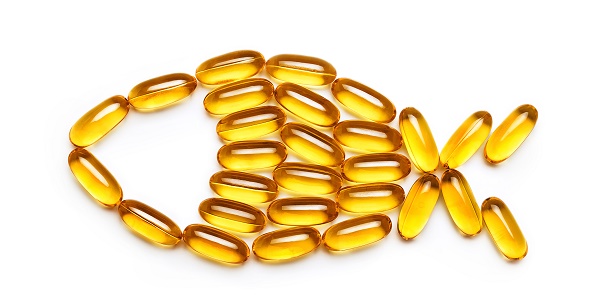Hypertension (High Blood Pressure)
.jpg)
Hypertension is defined as persistent elevation of systolic blood pressure (BP) of 140 mmHg or greater and/or diastolic BP of 90 mmHg or greater, taken at least twice on two separate occasions.
What are the symptoms of Hypertension
Hypertension is generally a silent condition as it has no particular symptoms. However, there are some symptoms which occur simultaneously can be associated with high blood pressure. These symptoms include:
- Headaches
- Shortness of breath
- Nose bleed
- Facial redness and fatigue
- Dizziness
- Chest pain
- Visual changes
- Blood in the urine
- Throwing up
- Asphyxiated
- Agitated
What are the causes of Hypertension
The exact causes of primary hypertension remains unclear, but several risk factors are strongly and independently associated with its development, which include:
1) Age
Advancing age is associated with increased blood pressure, particularly systolic blood pressure and an increased incidence of hypertension.
2) Obesity
Obesity and weight gain are major risk factors for hypertension and are also determinants of the rise in blood pressure that is commonly observed with aging.
3) Family history
Hypertension is approximately twice as common in subjects who have one or two hypertensive parents and multiple epidemiologic studies suggest that genetic factors account for approximately 30 percent of the variation in blood pressure in various populations.
4) High-sodium diet
Excess sodium intake (eg: >3 g/day [sodium chloride]) increases the risk for hypertension and sodium restriction lowers blood pressure in those with a high sodium intake.
5) Excessive alcohol consumption
Excess alcohol intake is associated with the development of hypertension and alcohol restriction lowers blood pressure in those with increased intake.
6) Physical inactivity
Physical inactivity increases the risk for hypertension and exercise is an effective means of lowering blood pressure.
What are the effects of Hypertension on the body?
The blood vessels and body organs can be damaged by the excessive pressure on the artery walls caused by hypertension. The higher the blood pressure and the longer it goes uncontrolled, the greater the damage.
Uncontrolled high blood pressure can lead to complications including:
1) Damaged arteries
Healthy arteries are flexible and strong. Blood flows freely and unobstructed through healthy arteries and vessels.
Hypertension makes arteries tougher, tighter, and less elastic. This damage makes it easier for dietary fats to deposit in your arteries and restrict blood flow. This damage can lead to increased blood pressure, blockages, and, eventually, heart attack and stroke.
2) Damaged heart
To pump blood against the higher pressure in the vessels, the heart has to work harder. This causes the walls of the heart’s pumping chamber to thicken (left ventricular hypertrophy). Eventually, the thickened muscle may have a hard time pumping enough blood to meet the body’s needs, which can lead to heart failure.
3) Damaged other organs
Weakened and narrowed blood vessels in kidneys which can prevent these organs from functioning normally.
Thickened, narrowed or torn blood vessels in the eyes. This can result in vision loss.
4) Damaged brain
Your brain relies on a healthy supply of oxygen-rich blood to work properly. High blood pressure can reduce your brain’s supply of blood.
Narrowed or blocked arteries can limit blood flow to the brain, leading to a certain type of dementia (vascular dementia). A stroke that interrupts blood flow to the brain also can cause vascular dementia.
What are the treatments of Hypertension?
MEDICATIONS
1) ACE Inhibitors
Angiotensin-converting enzyme (ACE) inhibitors reduce blood pressure by relaxing your blood vessels.
Example: Perindopril, Enalapril, Ramipril
2) Angiotensin II Antagonists
Angiotensin II antagonist work in a similar way to ACE inhibitors. They’re often recommended if ACE inhibitors cause troublesome side effects.
Example: Ibesartan, Losartan, Valsartan
3) Beta-Blockers
Beta blockers can reduce blood pressure by making your heart beat more slowly and with less force.
Example: Atenolol, Bisoprolol.
4) Calcium Channel Blockers
Calcium channel blockers reduce blood pressure by widening your blood vessels.
Example: Amlodipine, Nifedipine, Felodipine
5) Diuretics
Diuretics work by flushing excess water and salt from the body through your urine.
They’re often used if calcium channel blockers cause troublesome side effects.
Example: Furosemide, Amiloride, Spironolactone
SUPPLEMENT

1) Fish Oil
Fish oil may improve heart health by reducing blood lipid levels, inflammation, and high blood pressure. Studies show that those with high blood pressure may benefit from high-dose fish oil supplements (0.18-15g per day with 450-600mg content of EPA and DHA per g of fish oil).

2) Garlic
Garlic is found benefit in reducing both blood pressure and heart disease risk. Adding a garlic supplement may help lower blood pressure naturally. In fact, garlic supplements reduced systolic and diastolic blood pressure by an average of 8.3 mmHg and 5.5 mmHg respectively. It is estimated that this reduction may help decrease the risk of stroke, heart attack, and coronary artery disease by up to 40%.
3) CoQ10
CoQ10 is suggested to improve heart-related conditions like hypertension through neutralizing free radicals, increasing the production of energy in cells, and preventing the formation of blood clots. There is study suggest that this supplement can help in reducing both systolic and diastolic blood pressure (dose vary from 75–360 mg/day).

4) Magnesium
Magnesium is a mineral that’s critical for many bodily functions, including blood pressure regulation. Magnesium supplements may help reduce blood pressure by increasing the production of nitric oxide, a signaling molecule that helps relax blood vessels.
Every 100-mg daily increase in dietary magnesium was linked to a 5% reduction in high blood pressure risk.





